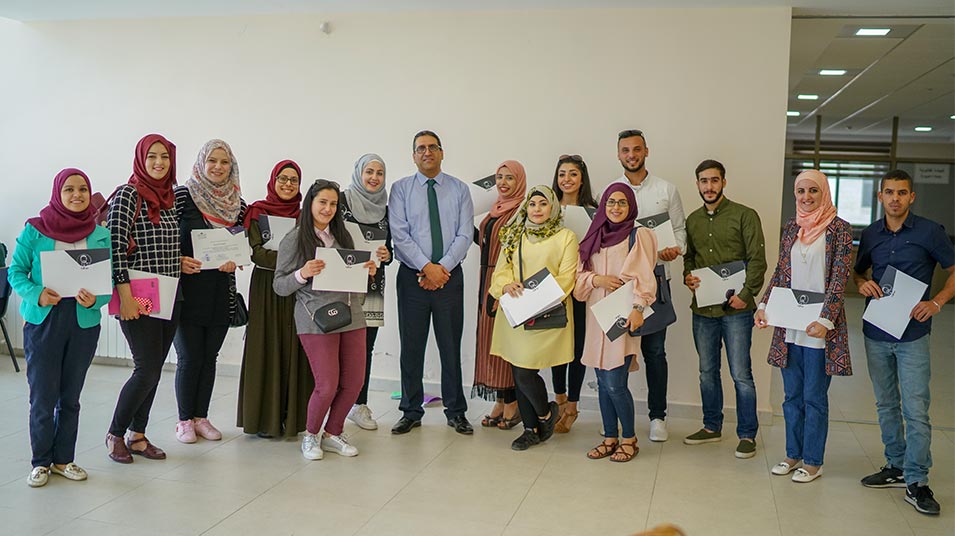Public administration students bolster their interpersonal skills, communication expertise
Fifteen public administration students recently wrapped up a training course that saw them strengthen their communication and interpersonal skills. The course, entitled “Chief People Officer,” was jointly held by the Department of Public Administration and Father Consulting, a leading Palestinian human resources development organization.
Attending the ceremony, which was held on Monday, May 28, 2018, were Dr. Yaser Amouri, dean of the Faculty of Law and Public Administration; Nour Mattour, an instructor in the Department of Public Administration; Hasan Qasem, the chief executive officer of Father Consulting; and Huda Mohammad, the company’s regional manager.
The three-month course comprised training on communication skills, human resource management, personal and behavioral skills, and performance management, with students receiving certificates of attendance at the end of the concluding ceremony.
“You are Birzeit University’s ambassadors,” said Amouri to the students. “And we make sure to provide you with all training and development opportunities that benefit you both now and in the future.”
Amouri emphasized the impact of the partnerships that the university has maintained with Palestinian organizations, adding that such cooperation only serves to strengthen the students’ skill sets and prepare them for a highly-competitive future.
In keeping with the theme of the future’s requirements, Mattour noted that readying students for the demands of the 21stis a key aim of the faculty’s programs and projects.
“Cooperating and communicating with development-focused civil society organizations allows us to formulate plans, programs, and strategies that develop students’ awareness of the accelerating advances in scientific and humanitarian sciences, and provides them with the opportunity to prepare beforehand,” she remarked.
Qasem, who led the training course together with Mohammad, reminded the students that affecting change in any society’s culture is a difficult undertaking, especially in the case of work cultures and environments. But such a goal, he mentioned, can be attained with perseverance and persistence.
“As student, you were the best starting class one could hope for,” said Mohammad, commenting on the students’ positive interactions with the instructors and the material during the three-month period of the course.
“You were able to give valuable, applicable feedback that we will certainly integrate into our future courses, classes, and workshops,” she concluded.








